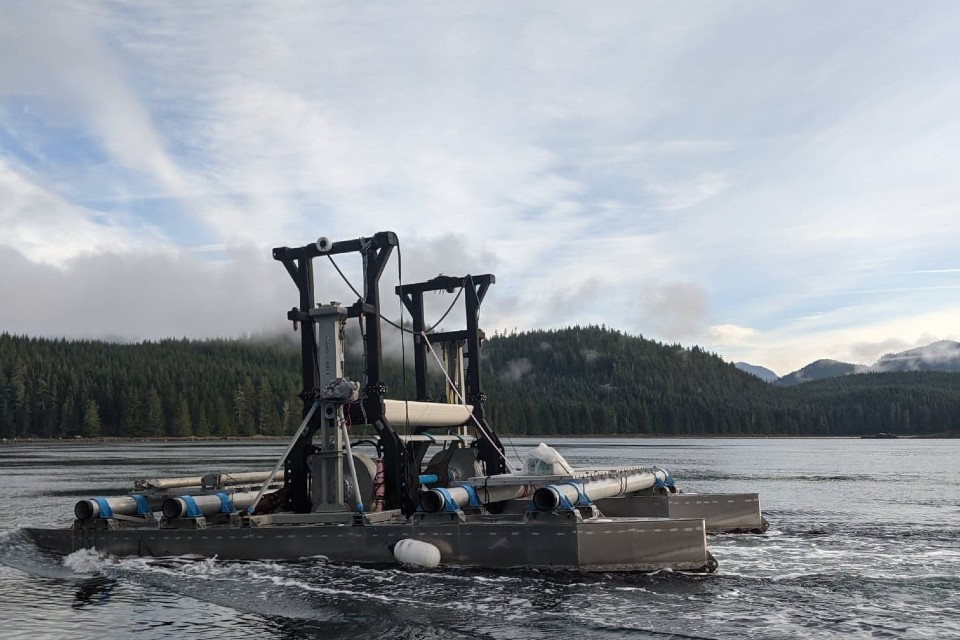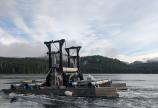FAQ on clean energy transition
Engineering, Peter B. Gustavson School of Business, Human and Social Development

On April 28, the University of Victoria and its 40-plus partners celebrated a federal investment of $83.6-million into Accelerating Community Energy Transformation (ACET).
What is Accelerating Community Energy Transformation?
Accelerating Community Energy Transformation (ACET) is a University of Victoria-led research initiative focused on moving Canada to net zero—one community at a time.
ACET is a collaborative initiative that will bring together diverse partners, including Indigenous, rural and remote communities, to create innovative place-based solutions for energy system transformation.
ACET will help transform regional economies, inform inclusive national policies and integrate breakthrough renewable energy technologies that will position Canada as a world leader in reducing greenhouse gas emissions and achieving its net zero goals.
What is Canada First Research Excellence Fund?
Canada First Research Excellence Fund (CFREF) is a government fund that aims to help Canadian post-secondary institutions achieve global success in research that creates long-term economic and social advantages for Canada. ACET is funded by CFREF.
What are ACET’s priorities?
The $83.6-million CFREF investment into ACET will be allocated to six strategic research areas over seven years:
- Low-carbon and offshore renewable energy technologies
- Distributed systems and hybrid microgrids
- Green hydrogen and e-fuels
- Business and finance innovation
- Integrated energy systems
- Complex systems
- Place-based transitions
- Worldviews
- Policy interactions
- Indigeneity
- Scale-up and acceleration
Why does this research initiative matter?
In Canada, 79 per cent of municipalities and residential areas are located outside major metropolitan centres. An estimated population of nearly six million Canadians living in rural, remote and Indigenous communities are heavily reliant on traditional resource industries.
Policy development and funding for clean energy projects in rural, remote, and Indigenous communities has not kept pace with the realities of the impacts of climate change compared to urban regions.
Why is ACET unique?
ACET employs a unique, bottom-up approach that brings together engineering, technology, business, policy and governance. It harnesses place-based enthusiasm and knowledge to catalyze change. This knowledge is transferrable and expandable to other communities to support community energy resilience and sovereignty.
Who are the partners?
There over 40 community and industry partners, including five First Nations, three municipalities and four university partners who are already part of ACET. UVic is excited for others to join UVic’s place-based approach to energy system transformation.
The four major academic partners are:
University of British Columbia: development of hybrid microgrids
Yukon University: work with off grid northern communities
Université du Québec à Trois-Rivières (UQTR): development of green hydrogen technologies
Royal Roads University: complex energy system dynamics
What are ACET’s partnership goals?
ACET’s partnerships with local, national and international stakeholders, including Indigenous and non-Indigenous communities, governments, non-profits and technology developers, are vital to its success.
ACET will work with sub-metropolitan municipalities, Indigenous communities and other diesel-reliant communities to advance energy systems transition.
With its partner communities, ACET aims to:
- implement real-world solutions
- study potential for replicability and scalability
- create exemplars to drive global change
How will ACET increase research capacity at UVic?
The ACET team will recruit nine new research faculty; 15 new research associates/technicians; 15 administrative professionals focused on partnership development and knowledge mobilization; and 224 new trainees.
Is there a one-size-fits-all solution when it comes to clean energy transition?
No. As there are multiple ongoing sustainability transitions across various industries and sectors that impact regions and communities in Canada in different ways, public policy must be able to accommodate a community-focused transition.
A multi-disciplinary approach is crucial to helping develop sustainable energy systems that are:
- reliable
- cost-effective
- socially acceptable
- aligned with United Nations Sustainable Development Goals (UN SDGs) to promote prosperity while protecting the planet
Although high-level work is critically important, much must be done at a lower level to support small-to medium-sized and local communities in their shifts toward low-carbon energy systems.
As such, low-carbon technology development must be undertaken with community input. ACET is technology agnostic but will leverage the specific expertise of key industry partners to develop, test and implement new technologies.
How are UVic researchers supporting Indigenous communities to meet their sustainable energy goals?
UVic recognizes that Indigenous communities face unique risks and constraints in developing local energy systems.
Our research collaborations include supportive partnerships with Indigenous communities across BC to help address their needs and advance their local sustainable energy planning processes. These projects also contribute to Indigenous reconciliation by helping remote, off-grid communities reduce their dependence on diesel fuel for power.
What is the role of UVic's Institute for Integrated Energy Systems or IESVic?
UVic has been committed to climate action for 30 years. Since 1989, IESVic’s mission has been to chart feasible pathways to sustainable energy systems through the development of new technologies, processes, and systems. IESVic is one of UVic’s premier institutes focused on energy system transformation by tackling the world’s greatest climate challenges.
IESVic member and co-director of UVic’s Pacific Regional Institute for Marine Energy Discovery (PRIMED), Brad Buckham, recently received funding for two clean energy projects. Find out more about:
Harnessing BC’s tidal energy reserves for a clean energy future
Wave energy project on Nootka Island receives $1-million grant
How is energy transition financed?
Financing the energy transition to ensure it remains sustainable and benefits the economy requires buy-in at the community-level, from regional, provincial and federal government, as well as investors, industry and the business community.
UVic’s newly established Impact Investing Hub and other work our researchers are doing aims to accelerate the financing of climate solutions through impact investing and helping key industry sector partners understand how they can prepare for and contribute to the transition to a lower-carbon economy.
How can UVic address the climate emergency?
Thanks to the knowledge of UVic scientists, engineers and researchers, we have the infrastructure and expertise to test new technologies and to find new ways of doing things–from harvesting the energy potential of our oceans to figuring out how to finance a new kind of low-carbon economy. This knowledge will help unlock capital at the scale and speed needed to meet the climate emergency.

